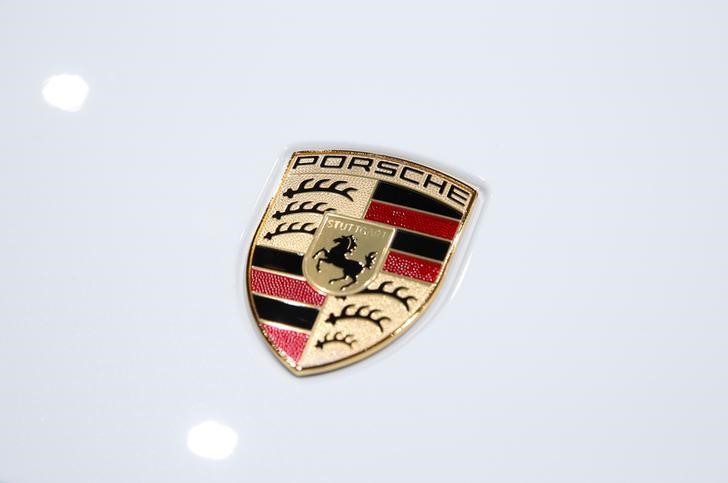By Christoph Steitz
FRANKFURT (Reuters) - Volkswagen's (DE:VOWG_p) Porsche will stop offering diesel versions of its cars, the unit said on Sunday, sharpening its focus on hybrid and battery-powered vehicles instead.
Volkswagen has admitted to deliberately cheating diesel emissions tests, sending shockwaves through the automotive industries and causing a sector-wide crackdown on polluting diesel engines.
As a result, carmakers around the world have ramped up spending on the development of electric cars, hoping to catch up with pioneer Tesla (O:TLSA).
"Porsche is not demonizing diesel. It is, and will remain, an important propulsion technology," Porsche Chief Executive Oliver Blume said in a statement.
"We as a sports car manufacturer, however, for whom diesel has always played a secondary role, have come to the conclusion that we would like our future to be diesel-free."
Porsche's existing diesel customers would continue to be served, he said.
Porsche, which is investing more than 6 billion euros ($7.1 billion) in electric mobility by 2022, said that demand for diesel models was dropping, adding their share of worldwide Porsche cars was 12 percent in 2017.
"We have never developed and produced diesel engines ourselves. Still, Porsche's image has suffered. The diesel crisis has caused us a lot of trouble," Blume said in a separate interview with weekly Bild am Sonntag.
German Chancellor Angela Merkel will hold a meeting on Sunday to discuss whether to require the car industry to carry out costly hardware upgrades for older diesel vehicles to reduce inner-city pollution, government sources said.
Porsche has sold diesel versions of its cars for nearly a decade. It has not had a diesel in its line up since February. Next year, it will launch the Taycan, which it says is its first fully-electric sports car.
According to Bild am Sonntag, Porsche is suspected of manipulating engines to improve their sound on the road at the expense of higher emissions, adding this function was not active in a testing environment.
Asked about this, Blume said: "In the individual case of the 8-cylinder Cayenne EU5, the Federal Motor Transport Authority (KBA) has declared an engine charge control as not being in line with the law. This was about nitrogen oxide, not CO2."

Blume said that Porsche was owning up to the issue, adding it affected about 13,500 diesel vehicles and that the carmaker was also examining petrol cars as a precautionary measure.